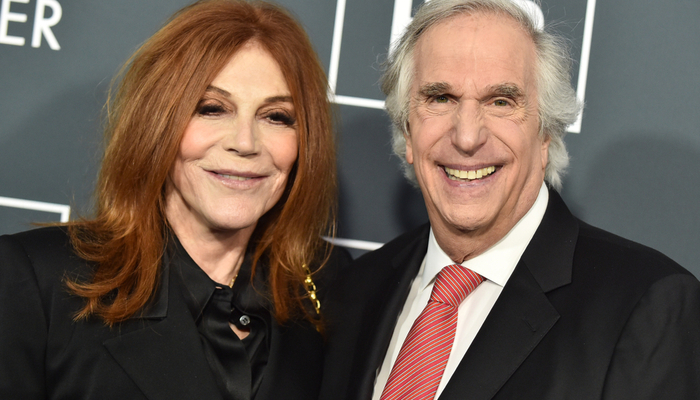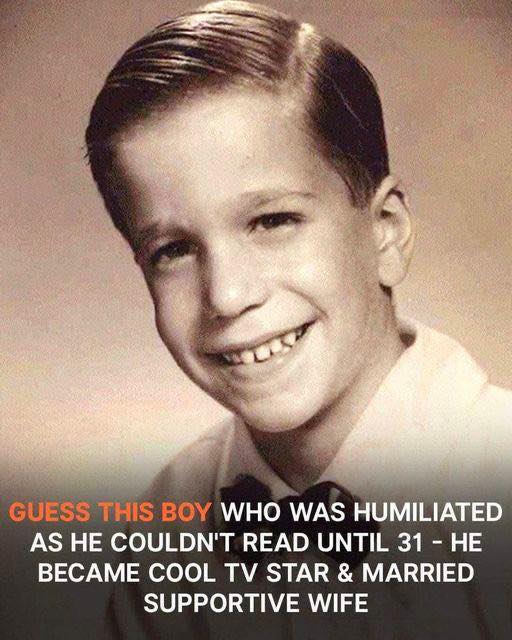Henry Winkler is a successful American actor, comedian, producer, and director. He became famous in the 1970s for playing Arthur “Fonzie” Fonzarelli on Happy Days. However, his childhood was not as bright as his career. He grew up with undetected dyslexia and he struggled in school with little sympathy from his teachers and parents. But as a child, he enjoyed acting and eventually got his MFA degree from Yale School of Drama. Eventually, he moved to Los Angeles, and got his famed role in Happy Days. He married Stacey Weitzman and they raised two kids together, plus Stacey’s son from a previous marriage. Despite his fame and his rough upbringing, Henry Winkler was determined to give them a normal childhood.
Henry Winkler on His Childhood
“I made a decision when I was 10 — and I thought about it every day — that I was going to be a different parent from my parents,” Winkler said. “I think one of the most important things in being a parent is seeing your child in front of you as who they are — not who you want them to be. If you do that, it solves about two million problems right off the bat.” [1]
Winkler’s parents migrated to New York from Germany just before World War II. He grew up with undiagnosed learning disabilities and faced much criticism from his parents as a result. They called him stupid and dumb, not living up to his potential. He even had the nick name “Dumm Hund.”
“…I was grounded for most of my high school career. They thought if I stayed at my desk for 6 weeks at a time, I was going to get it and they were just going to put an end to the silliness of my laziness. That was going to be that.”
Despite his admiration for his parents escaping Nazi Germany and creating a new life, Winkler described them as “emotionally destructive” adding that “I never felt heard.”
Then Henry’s stepson, Jed, got diagnosed with dyslexia. And at age 31, so did Henry Winkler. “I went, ‘Oh my goodness. I have something with a name.’ That was when I first got it“. Later on, Winkler’s other children got diagnosed with dyslexia. “Fortunately, we found out early, but if you don’t catch it early, a child’s self-image plummets, as mine did.” [2]
“Each child, they do it their own way“
“I know this now about being a parent,” Winker says. “Our job is to keep [our children] as safe as we can, and to encourage as much as we can for them to meet their destiny.” And each child, he adds, is an individual. “Each child is like baking a muffin. You know, you put a toothpick in to see if it’s done. Each child, they do it their own way.”
Despite Henry Winkler’s fame and success, he kept his children away from the spotlight. He wanted to ensure “our home life was as normal and consistent as possible.” He ensured there were rules and boundaries in his household, including a ban on show business. And of course, he emphasized communication and listening to his children.
Today, he dotes on his grandchildren, giving them generous gifts, spending time with them, and reading them stories from his books. [3]
Inspiring Children Through Books
Winkler has written two book series for children with author Lin Oliver, Ghost Buddy and Hank Zipzer: The Mostly True Confessions of the World’s Best Underachiever. These books use a format that makes reading easier and he writes with short chapters to help the story feel less underwhelming. Plus, it helps kids feel more accomplished as they read.
While Winkler says he is not an authority on parenting, he says, “I am an authority on wanting every child to know that they have greatness inside them. I’m on a mission that I didn’t even know I was on. I want every child to know that just because school is difficult for them, it has nothing to do with how brilliant they are.”

Henry Winkler deems these books his greatest achievement, aside from of his children and grandchildren. They earned him an award from Queen Elizabeth in 2011. Additionally, they named him an Honorary Officer of the Most Excellent Order of the British Empire in recognition of his work to children with learning disabilities and special educational needs.
Having dyslexia is a challenge for any actor, where reading and memorizing scripts is a clear requirement, but Winkler learned how to overcome this constant obstacle. Therefore, he emphasized this message to the children he inspires. “A learning challenge doesn’t have to stop you. Every child who writes me a letter about Hank Zipzer, I write back. In every letter I include, ‘your learning challenge will not stop you from meeting your dream. Only you will stop yourself from meeting your dream.”‘ [4]
